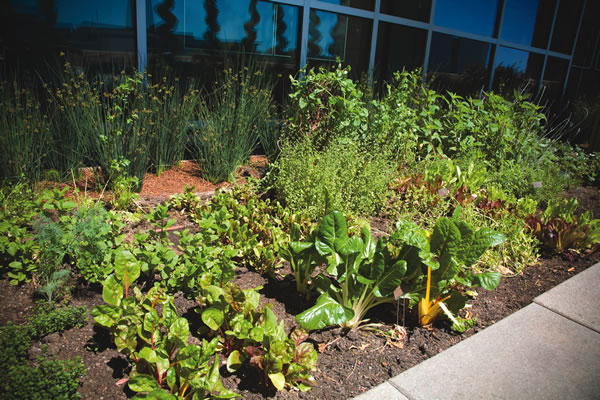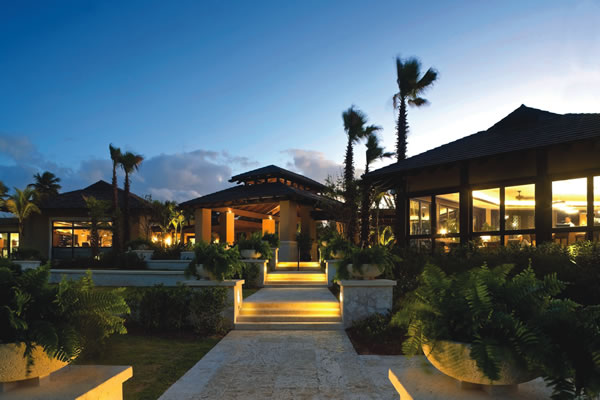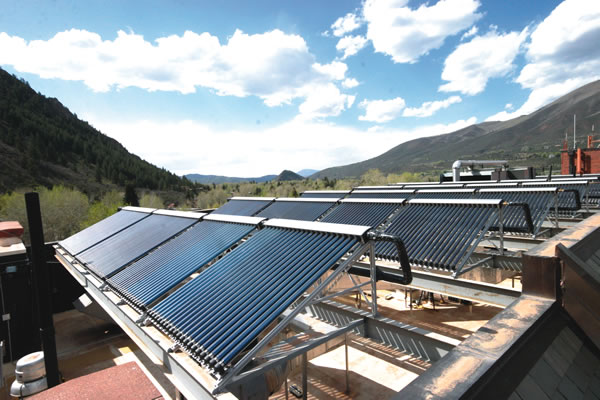The St. Regis is setting the sustainability standard at its addresses throughout the world. By Vicki Hogue-Davies
Using the earth’s resources wisely is a major focus at St. Regis Hotels & Resorts. The brand has implemented numerous green programs and practices at its properties to meet the high sustainability standards of its hotel group, Starwood Hotels & Resorts. St. Regis properties, led by on-site sustainability teams, are actively working to deepen their shades of green.
Involvement with the nonprofit Clean the World, which works to reduce waste from discarded soap and shampoo products, is an important initiative for several St. Regis hotels and resorts.
“Our room attendants collect all shampoo containers and soap at the end of guest visits and bring them to housekeeping, where they are boxed and shipped to the organization,” says Breandan Gallagher, director of rooms for The St. Regis New York.
At The St. Regis Monarch Beach, sustainability champion Elaine Harrison notes that the program not only helps to prevent disease globally, but it also “diverts an estimated 550 tons of waste from landfills throughout North America.”
Douglas Hayes, director of operations for The St. Regis Aspen Residence Club, says that according to the World Health Organization, one-third of the diseases that kill children under the age of 5 could be prevented by hand-washing with soap.
The reduction of energy use is another area of focus for the St. Regis. The St. Regis Aspen Resort has lessened its carbon footprint by using solar energy and implementing other energy and water reduction initiatives, reducing energy consumption by 16.7 percent and water use by 16.3 percent, according to Hayes. The resort’s custom solar thermal system with more than 1,300 solar evacuation tubes mounted on the resort’s roof to heat water has dramatically decreased its dependence on natural gas. Meanwhile, The St. Regis New York and The St. Regis Monarch Beach are replacing traditional lightbulbs with those that use less energy and The St. Regis Houston uses energy-efficient lighting in back-of-house areas.
Eco-friendliness is kept in mind during the construction of new hotels and resorts as well. At The St. Regis Atlanta, efforts included the installation of driveway pavers made from pervious recycled concrete to reduce water runoff, roof shingles made of recycled rubber, and energy-saving exterior windows and doors. High-efficiency heating, ventilation and air-conditioning systems were installed. Low-flow toilets and water-flow restrictors reduce excess water usage. The hotel’s pre-cast exterior was designed to absorb heat and insulation, and weatherproofing exceeded building code requirements.
 The St. Regis Bahia Beach Resort is also built upon a foundation of sustainability. The property received Certified Gold Audubon Signature Sanctuary designation from Audubon International for its thoughtful design, building and maintenance of the resort, which helps minimize disturbance to local plants and wildlife. The resort cultivates native plants to protect the natural vegetation of its lowland coastal and forest areas. Major initiatives to reduce energy and water consumption and a single-stream recycling program are also being established at the property.
The St. Regis Bahia Beach Resort is also built upon a foundation of sustainability. The property received Certified Gold Audubon Signature Sanctuary designation from Audubon International for its thoughtful design, building and maintenance of the resort, which helps minimize disturbance to local plants and wildlife. The resort cultivates native plants to protect the natural vegetation of its lowland coastal and forest areas. Major initiatives to reduce energy and water consumption and a single-stream recycling program are also being established at the property.
“These initiatives are important in reducing our consumption and carbon footprint, along with being a green leader in the community,” says Mark Forkey, director of engineering at The St. Regis Bahia Beach Resort.
Committed to overall sustainability, St. Regis Hotels & Resorts participate in regional programs to protect the environment. At The St. Regis San Francisco, glass and aluminum are hand-separated for recycling and cooking oil is converted locally to biodiesel fuel. With the exception of seafood flown in from Japan, all food is sourced within a 100-mile radius of the city from organic sources and farmers who use renewable farming practices. Fresh herbs used in the property’s dishes are taken from the executive chef’s herb garden on the property. The St. Regis Bahia Beach Resort also has a garden, which provides fresh produce and herbs for use at the resort’s restaurants.
The St. Regis San Francisco, as well as Atlanta and Monarch Beach, participate in food-composting programs to reduce waste in local landfills and provide compost to local farmers.
The St. Regis Bal Harbour Resort is working toward earning recognition and certification for its environmental sustainability efforts from Florida Green Lodging and a LEED certification for existing buildings from the U.S. Green Building Council. The resort is implementing a variety of initiatives in the areas of energy and water conservation, minimizing waste, enhancing indoor environmental quality and raising awareness about the importance of environmental sustainability. Some specific examples of sustainable programs include using energy-efficient lighting and windows; recycling cooking oil, plastic, linens, towels and other items; and using eco-friendly and chemical-free laundry and cleaning products.
The St. Regis Houston recycles paper products, plastic, aluminum, cooking oil and green waste. Irrigation systems are regularly checked for water leaks and efficiency. Paperless guest check-in procedures ensure a smaller footprint on the planet as well.
“Environmental sustainability has become an essential ingredient to doing business responsibly and successfully,” says Brian Fishbeck, director of engineering for The St. Regis Houston. “Simply put, ‘It’s just the right thing to do.’ ”










